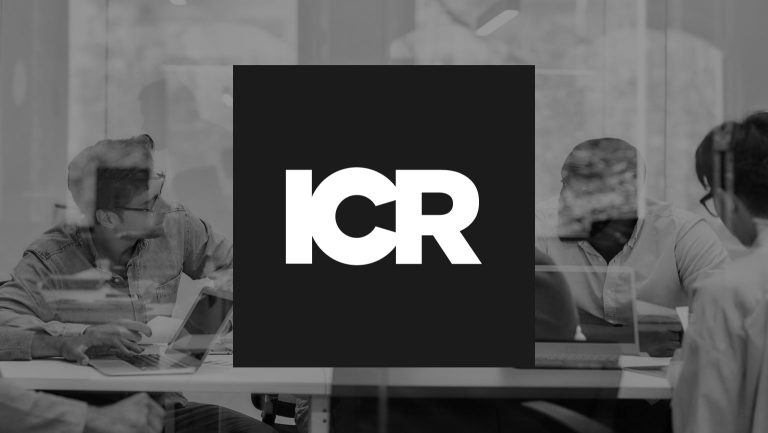In the August 2022 edition of The ICR D.C. Insider, we share our insights and analysis about developments in Washington that could have an immediate and long-term impact on your business.
The SEC
Rule Proposals – Reactions
- Climate Change Reporting – The SEC’s major policy proposal that would, for the first time, mandate all registrants regularly disclose their climate-related risks and greenhouse gas emissions received more than 14,000 public comments. More than 1,000 were substantive, an “extraordinarily high number,” according to law firm Ropes & Gray. By way of comparison, about 90 comment letters were received on the proposed SPAC rules.
- Rep. French Hill (R-AR) has introduced a bill to stop the finalization of the ESG proposal. It is not likely to move forward in the Democratically-controlled House.
- Special Purpose Acquisition Companies – The proposed new rules on SPACs could force almost half of the SPACs that are still searching for a merger partner into liquidation, according to a new report from SPAC Insider.
- SEC Sued Over Proxy Advisory Firm Rules – The U.S. Chamber of Commerce, Business Roundtable, and Tennessee Chamber of Commerce & Industry sued the SEC in an effort to reinstate some restrictions on firms that provide proxy-voting advice to shareholders of public companies. The action followed a suit filed earlier by the National Association of Manufacturers, alleging that the SEC failed to provide enough justification for the rule change.
A Slow Public Company Accounting Oversight Board Is Called Out – SEC Chair Gary Gensler pointed out that the PCAOB has been slow to update its rules, in a speech marking the 20th anniversary of the law (Sarbanes-Oxley) that created the organization. In November 2021, the SEC appointed four new board members to the PCAOB, including current Chairwoman Erica Williams, after firing the former Chairman, William Duhnke, and moving to replace the board in June 2021.
Companies Pressed For More Information on Russia-Ukraine Exposure – Following a broad request in May for details about companies’ Russia exposure, the SEC sent specific queries about earnings that may be stuck in Russia, currency-related losses, and other potential financial impacts to companies including Citigroup Inc.; United Parcel Service Inc.; Viasat Inc.; Core Laboratories NV; and United Maritime Corp., a shipping business that recently went public. The agency has asked many of them to make changes for future filings, so investors can adequately assess the risks.
More Reporting From Hedge Funds Proposed – In collaboration with the Commodities Futures Trading Commission (CFTC), the SEC proposed a rule that would increase the disclosures from large hedge funds about their investment strategies and leverage. The rule would expand reporting requirements for advisers and large hedge funds with a net asset value of at least $500 million when filing Form PF with the SEC. Framed as a step to reveal – and, therefore, measure – systemic risk, the proposal would require funds to provide more details on their investment strategy and exposure, including borrowing and financing arrangements, open positions and certain large positions, as well as their cryptocurrency exposure.
Enforcement Priorities – In his testimony before the House Financial Services Subcommittee on Investor Protection, Entrepreneurship, and Capital Markets, SEC Enforcement Division Director Gurbir Grewal outlined a three-part framework of enforcement priorities. Grewal is focused on robust enforcement, remedies, and compliance, using these issues as the foundation of his argument for a budget increase.
Executive Stock Sales – Senators Want New Limits – A group of Democratic senators led by Elizabeth Warren is redoubling efforts to get the Commission to clamp down further on executives’ ability to use inside information to make well-timed stock trades. In December 2021, the SEC proposed that companies would be required to disclose in regulatory filings whether executives have adopted or made any changes to when they plan to sell stock. Employees would also be prevented from having multiple plans for trading the same security. The senators’ plan goes further than the SEC’s proposal, which could be finalized in the coming months.
The FTC
New Rules For Online Privacy Could Be On The Way – With a party-line 3-2 vote, the FTC agreed to issue proposals for public comment which would crack down on harmful commercial surveillance and lax data security. The FTC is seeking comment on a wide range of concerns about commercial surveillance practices. If adopted, the rules could impose significant new responsibilities on businesses that handle consumer data, including potentially limiting, if not outright barring, certain kinds of data collection practices, such as limiting commercial surveillance practices that use or facilitate the use of facial recognition or other biometric technologies. Groups have already begun to push back on the proposal.
Meta/Facebook Sued To Prevent Acquisition – A Sign of Things To Come? – The lawsuit to block Facebook owner Meta from buying Within Unlimited, the company that makes the virtual reality fitness app Supernatural, is seen by some as one of the first major events of Chair Lina Khan’s leadership at the FTC – and a signal of what’s ahead. The progressive tech critic was sworn in as chair in June 2021.
The Consumer Financial Protection Bureau
Tech Companies Accountable For Financial Ads – In an interpretive rule release, the CFPB warned big tech companies that they’re not exempt from consumer finance laws if they help design and place financial ads. The agency said tech companies who work closely with financial firms on their ad strategies will face more stringent regulatory oversight than print or TV advertisers, given that the tech companies are intimately involved in the ad-making and ad-placing processes. Under this interpretation, “digital marketers” do not qualify for the exemption provided to more traditional advertisers who only provide “time and space” for financial ads.
Financial Companies May Be Held Liable For Lax Data Security – Financial companies may be held accountable when they violate federal consumer financial protection law if they fail to safeguard consumer data, according to the CFPB. The agency said it will issue circulars to government agencies and other enforcers to alert them to this possibility. While the CFPB is the principal regulator responsible for administering the federal consumer financial laws, enforcement responsibility is spread among a large set of state and federal government agencies.
Key Developments
China Tariffs – No Decision Yet – Commerce Secretary Gina Raimondo said that President Biden is “very cautious” about potentially lifting tariffs on more than $300 billion in Chinese goods. Beijing’s response to U.S. House Speaker Nancy Pelosi’s visit to Taiwan triggered a recalculation by Biden Administration officials, who are eager not to take any action that could be seen by China as an escalation, while also seeking to maintain a strong image of the U.S. in the face of the China’s economic aggression.
Competition For Workers Draws Federal Scrutiny – The Department of Justice (DOJ) and the National Labor Relations Board (NLRB) have teamed up to combat collusion among employers in their competition for workers. The DOJ’s Antitrust Division and the NLRB plan to coordinate more closely on investigations and enforcement actions under a joint memorandum of understanding (MOU).
Cryptocurrencies
The Jockeying to Regulate Crypto Continues
- In the Senate, Agriculture Committee Chairwoman Debbie Stabenow (D-MI), top-ranking Republican John Boozman (R-AR), along with other members, unveiled the bipartisan Digital Commodities Consumer Protection Act of 2022. The legislation would give the CFTC the tools and authorities needed to protect consumers, prevent fraud and abuse, and to create transparency and accountability in the digital commodity marketplace.
- In the House, a bipartisan group of lawmakers, including Reps. Maxine Waters (D-CA) and French Hill (R-AR), both of whom are on the House Financial Services Committee, are pushing the Federal Reserve to move swiftly to issue a digital dollar. The effort is meant to combat steps from China that lawmakers say could one day threaten the U.S. status as the global reserve currency.
- At the SEC, Chair Gensler stepped up his push to get crypto trading platforms to register (like other markets/exchanges do) with the Wall Street regulator in a video released via Twitter. Separately, Chair Gensler is also working to get some cryptolending companies to also register with the Commission if they operate more as investment firms.
- Sen. Pat Toomey (R-PA), the Ranking Member on the Senate Banking Committee, criticized Chair Gensler in a letter, saying that the agency’s regulation-by-enforcement method is “capricious and ineffective.” He argued that the SEC’s failure to act on crypto lenders may have led to their collapse over the past several months.
- At the Treasury Department, Undersecretary for Domestic Financial Nellie Liang told a Financial Services Forum conference that the department is working with Congress to pass legislation that would include a path for nonbanks to issue stablecoins. Liang clarified that the issuing entity should still be affiliated with a bank, but that the token would not have to be issued by a retail bank subsidiary with deposit insurance.



